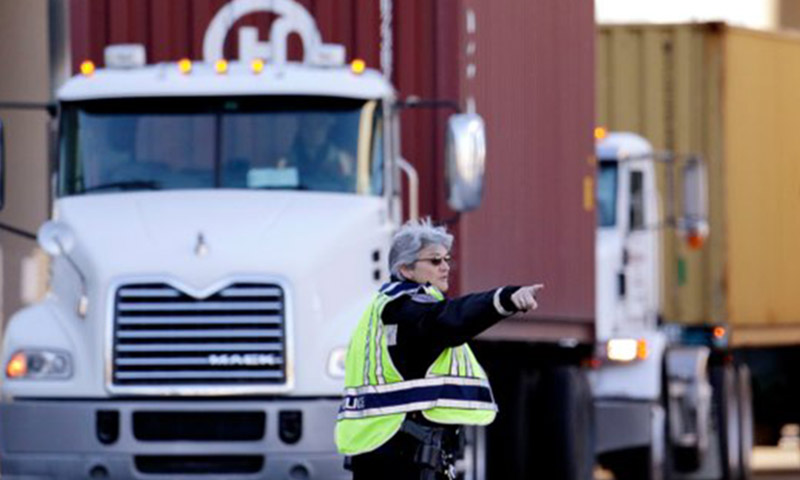The transportation process involving customs trailers is a multifaceted and crucial aspect of the logistics industry, encompassing various stages to ensure the seamless movement of goods. This process involves careful planning, adherence to regulations, and efficient coordination between multiple parties to guarantee timely and secure deliveries.

Booking and Documentation:
The transportation process begins with the booking of a customs trailer. Businesses or individuals needing to transport goods arrange for a suitable trailer, considering factors such as size, weight capacity, and the nature of the cargo. Documentation, including invoices, packing lists, and relevant permits, is prepared to comply with customs regulations and facilitate smooth border crossings.
Loading and Securing Cargo:
Once the trailer arrives at the pickup location, the cargo is carefully loaded, taking into account proper weight distribution and securing the items to prevent shifting during transit. Loading procedures vary based on the type of goods being transported, with fragile or perishable items requiring special attention and secure fastening mechanisms.
Customs Clearance:
Customs clearance is a pivotal step in the transportation process, especially for international shipments. Documentation, including commercial invoices, customs declarations, and permits, is submitted to customs authorities for inspection and approval. Customs officials verify the accuracy of the provided information, assess applicable duties and taxes, and ensure compliance with import/export regulations.
Transit and Border Crossings:
Upon receiving customs clearance, the customs trailer embarks on its journey. For international shipments, the trailer crosses borders, where customs inspections and clearance procedures may occur again, depending on the destination country's regulations. Experienced customs brokers or freight forwarders often assist in navigating the complexities of cross-border movements, ensuring compliance with diverse customs requirements.
Transportation and Delivery:
The customs trailer travels to its destination, following predetermined routes and schedules. Throughout the journey, logistics professionals monitor the shipment's progress, addressing any unforeseen challenges promptly. Upon reaching the destination, the cargo is carefully unloaded, inspected for damages, and verified against the delivery receipt or packing list.
Unloading and Distribution:
At the destination, the cargo is unloaded from the trailer and prepared for distribution. Distribution processes vary based on the recipient's location and specific requirements. Goods may be further transported via smaller vehicles, stored in warehouses for inventory management, or directly delivered to retail outlets or end consumers.
In conclusion, the transportation process involving customs trailers demands meticulous planning, compliance with regulations, and efficient execution at every stage. By ensuring proper documentation, cargo security, and adherence to customs procedures, businesses and individuals can rely on customs trailers as a reliable and flexible solution for transporting goods both domestically and internationally.